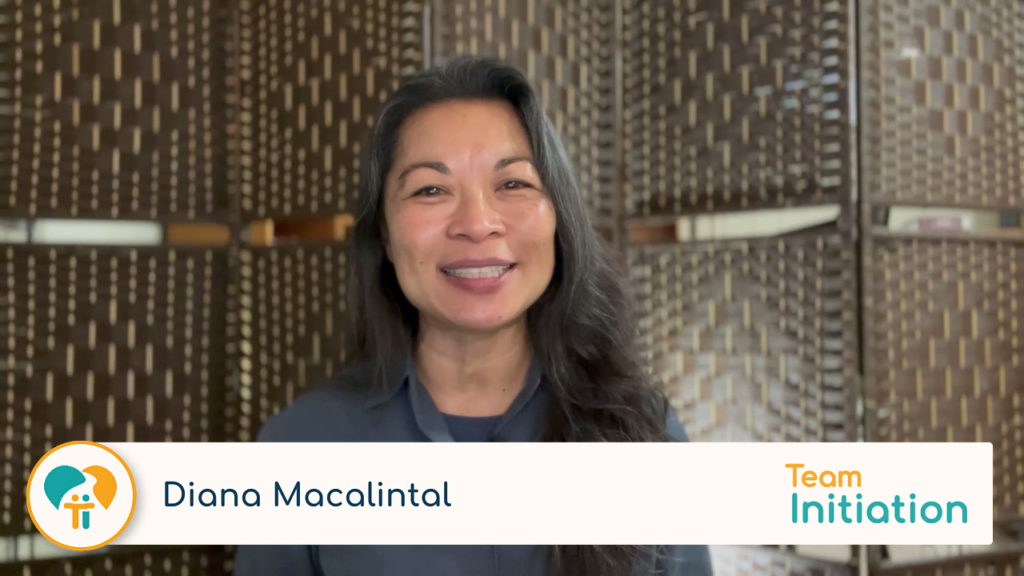
This past fall I had the pleasure of working with Fr. Ron Lewinski at a couple of Forum institutes. Fr. Lewinski is a pastor and former director of the Office of Divine Worship in the Chicago Archdiocese. He was one of the early leaders in the catechumenate during its initial implementation in the 1970s and ’80s. Something he said about the Scrutinies impressed me, and I’d like to pursue the thought here further. The idea he presented was that the Scrutinies are about seeing something. They are a means of seeing sin in its true aspect, and seeing who Christ is for us. He is our liberator, and reigns over all.
Often enough, when people sin, they are not attempting to do something wicked. They are trying to attain some end which seems good, but they don’t see the full picture. They don’t see how pursuing it may engender other, negative consequences. The example he gave was of a man who took on extra work in order to get a promotion. His goal was to secure a better home for his family. His desire was for something good. But the time that his work took away from his daily life ultimately resulted in the break up of his family. He got his promotion, but at what a cost!
How Evil Works
This is often how evil works into our lives. We can all think of similar examples. Our striving after something we think is good can become something quite different, unless we see it rightly. Or sometimes we feel trapped; we can’t seem to move forward. We think the sinful or negative aspects of our lives are impossible to change. We don’t see how things could be different. Or, focused on our own needs, we don’t see that the needs of our neighbor also have a claim on us. Not only that—we may miss entirely the promise that responding to the needs of others will actually make our own lives better, freer, and more holy. We don’t see it. Giving without calculation looks like foolishness, a bad investment, when it really is the best use of our gifts.
How we see is important. And a Scrutiny is about seeing. When we see sin in its right aspect, we become free to choose something different, to step away from sin and into the light of Christ. When we call upon Jesus Christ to help us, all kinds of good things begin to happen.
The Scrutinies are therefore an exercise of sight and of letting the light in. They make an opening to new and better living. They open the eyes of our hearts and souls, so we can see what is truly good. The elect need to see how sin works in their own lives, in order to turn away from it, and walk into the light of Christ at Baptism.
Scrutiny is about seeing. When we see sin in its right aspect, we become free to choose something different, to step away from sin and into the light of Christ. When we call upon Jesus Christ to help us, all kinds of good things begin to happen.
The Worth of Repetition
I’d like to suggest two reasons why it is good that the Scrutinies are repeated (they are celebrated three times, unless some truly extraordinary circumstances prevent it). There are more than two reasons why the Scrutinies are repeated, of course—reasons from tradition and so on—but these two arise from the very nature of the human subject.
First, the Scrutinies need to be repeated because they are like an exercise. Only by doing them repeatedly do we get the hang of it. Spiritual therapy of this sort makes us stronger, just as physical exercise makes us strong in body. Scrutinies are a kind of exercise of the spirit. Discerning sin, and turning to receive God’s grace make us firmer in resolve, and strengthens our will for doing good.
Second, we repeat the Scrutinies because we don’t know how deep our trouble is until we start looking. We see more clearly, each time, that we still have a way to go. Recall the story of a healing in the eighth chapter of Saint Mark’s gospel. The evangelist tells of a blind man at Bethsaida whom Jesus heals, but the healing of his sight proceeds only in stages. Jesus puts saliva on his eyes, and lays hands on him, and asks him if he can see now. The man replies I can see people, but they look like trees, walking. (Mark 8:24). So Jesus lays his hands on him again, and only then does the healing become complete. It took more than one try.
How remarkable this episode of gradual healing is, for Mark. In the other stories Mark tells, things usually happen at lightening speed. His gospel uses the word immediately more than any other sacred author—thirty-four times! There is no waiting around in Mark’s gospel. But here it takes a second touch to free the man’s sight. A parable for us, indeed.
The Scrutinies—three of them—are experiences of the freeing touch of grace, which restores our sight, letting us see good and evil, sin and grace, as they really are. The Scrutinies are repeated so that we will learn to see well. Haste can short-circuit the process. We need to repeat the Scrutinies so that the elect will see sin and grace not just as shadows, trees walking, but in the contours of sharply defined people, places, and events.
After Initiation
The ritual and catechetical events of the initiation process prepare for the sacraments. But they also teach people the skills they will need for living as faithful disciples long after initiation. The goal of initiation is forming disciples who live the Christian life. Initiatory events are not left behind once they are over. Their echoes remain. Their pattern is retained in us, as the template for future experiences. They become part of ourselves as valuable ideas, worthy habits, learned responses, and treasured relationships that will be used and tested again and again in our ongoing human experience.
That is yet another reason why the Scrutinies must be celebrated well. Passionately. And with a clear sense of their purpose. The assembly too, year after year, has the benefit of these rites. The faithful do not receive a laying on of hands year after year—that is for the elect—but they too can pray for clearer sight. We all need it.
The Scrutinies—three of them—are experiences of the freeing touch of grace, which restores our sight, letting us see good and evil, sin and grace, as they really are.
Can you help me out?
I’d love to know how this is landing. Can you share a word or a phrase about how this article resonates with you? Does it speak to your experience? Share your thoughts in the comments box below. Thanks for being part of the conversion!











Thanks for posting this. Just last week I got the question (as I do every year), “What are the Scrutinies?” and “Why are there three of them?” I’ve been involved with the RCIA for 14 years, and I’ve always had trouble answering these questions in a way that felt genuine. This really helps me put it in a perspective I can share with the catechumens. Thanks so much!
Rita, your thoughts on the scrutinies in this post are just terrific! I think you are spot on that most often sin starts out as some good intention, hidden from sight. I loved your line that scrutinies are experiences of the freeing touch of grace. I also heartily applaud your comment that echoes remain of the initiatory events long after they are over. Thanks for giving us clearer sight into the scrutinies.
We hear repeatedly about people who got taken by some scam. We’re prone to say, “How could they be so foolish?” But the fact is that we are tempted everyday to choose something which looks good but is ultimately harmful to the Christian spirit. The Scrutinies are the Church’s prescription for healing our blindness. As the elect submit themselves to this spiritual therapy we all learn from this action of grace.
“That is yet another reason why the Scrutinies must be celebrated well. Passionately. And with a clear sense of their purpose.”
You are so spot-on with this statement. Being involved with RCIA for almost 30 years, I’ve seen and experienced how often the Rites just seem to be flowing because they are a part of the journey.
As catechists we need to infuse passion in how we teach and share the faith. I believe those who hunger for it are really looking to feed off of us and the passion we express.
Thanks for this very awesome article!
Pingback: 40/40 – Lenten Activities: The Scrutinies
Pingback: It’t Time for the Living Stations Again!
Diane Pappas
I am sponsoring a candidate with RCIA. I am wondering if you can give me any information of an existing program for newly baptized Catholics who want to continue in their learning of the faith, i.e. Bible studies or adult ed specifically for them to gather in their RCIA groups and continue to grow in the faith. They are showing an interest for this. Do we have any such program in place for continued learning and sharing?
Hi Diane,
Faith, Life & Creed would be perfect for newly baptized Catholics who want to continue in their learning of the faith.
You can find more information about it here:
https://teaminitiation.com/faith-life-creed/faith-life-creed/
Let me know if you have any questions.
This weekend, I had the awe-filled pleasure of seeing the “light go on” for one of our Elect during the First Scrutiny. He GOT IT, like he never had before. Ritual has the power to transform-and this one did.
I love it, Mel! Same thing happened at our parish this past weekend. I sensed that both our elect and our community GOT IT because of the power of the ritual and of doing the ritual well! Praying for your elect with you!